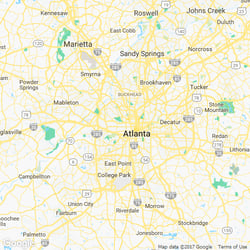Atlanta, GA lawn care service starting at $19
Easily order Atlanta lawn care, lawn mowing, and other lawn services from the comfort of your screen.

How It Works
Book in less than 2 minutes: completely online or over the phone.
Enter Your Address→ See Your Exact Price
In seconds, entirely online.
How We Calculate Your Exact Price
We Know Every Property Is Different
Pools, driveways, garden beds, patios. We understand your property has unique features. We've spent years analyzing millions of properties, perfecting satellite and AI technology that identifies only the areas that actually need service.
This Isn't a Quote. This Is Your Exact Price.
Upfront, transparent pricing. Only 2% of our prices ever need adjustment, and even then, your first service stays at the quoted price.
Pick a Date That Fits
48-hour start time available for 9 out of 10 customers.
Relax, Our Pros Will Handle the Rest
Covered by our Done Right Guarantee. Tell us within 5 days, and we can re-mow or refund.

Total Flexibility, One Tap
No contracts. Cancel, Skip, or Reschedule with one-tap. Don't like their yellow shirt? Swap crews instantly.

Inspect First, Pay Later
Card won't be charged for 3 full days after service. Time to ensure you're 100% satisfied with the work.

Only the Top 3% of Pros
Just 1 in 30 pros pass our vetting & background check.
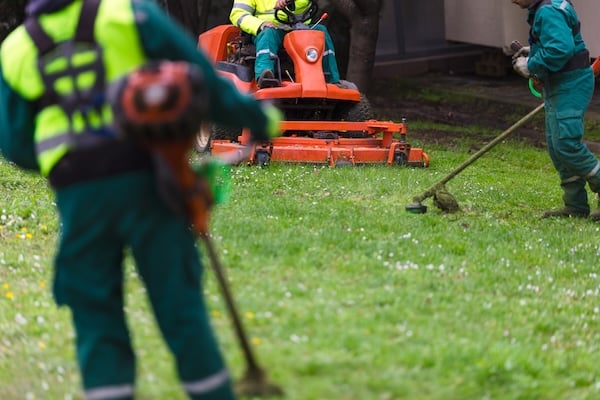
Your Complete Outdoor Team
Your regular pro for maintenance & cleanups. Licensed specialists for treatments. 25 services, 1 app.
Tell us within 5 days if anything’s off and we’ll re-mow or refund. 95% of our services satisfy the customer. For the other 5%, our guarantee kicks in. Every visit is backed by $2 million in property protection.
How LawnStarter works
Get started in under 5 minutes

View Pricing

Choose your service date

Let our pros do the work
How It Works
Book in less than 2 minutes: completely online or over the phone.
Enter Your Address→ See Your Exact Price
In seconds, entirely online.
How We Calculate Your Exact Price
We Know Every Property Is Different
Pools, driveways, garden beds, patios. We understand your property has unique features. We've spent years analyzing millions of properties, perfecting satellite and AI technology that identifies only the areas that actually need service.
This Isn't a Quote. This Is Your Exact Price.
Upfront, transparent pricing. Only 2% of our prices ever need adjustment, and even then, your first service stays at the quoted price.
Pick a Date That Fits
48-hour start time available for 9 out of 10 customers.
Relax, Our Pros Will Handle the Rest
Covered by our Done Right Guarantee. Tell us within 5 days, and we can re-mow or refund.

Total Flexibility, One Tap
No contracts. Cancel, Skip, or Reschedule with one-tap. Don't like their yellow shirt? Swap crews instantly.

Inspect First, Pay Later
Card won't be charged for 3 full days after service. Time to ensure you're 100% satisfied with the work.

Only the Top 3% of Pros
Just 1 in 30 pros pass our vetting & background check.

Your Complete Outdoor Team
Your regular pro for maintenance & cleanups. Licensed specialists for treatments. 25 services, 1 app.
Tell us within 5 days if anything’s off and we’ll re-mow or refund. 95% of our services satisfy the customer. For the other 5%, our guarantee kicks in. Every visit is backed by $2 million in property protection.
Why LawnStarter?
Happy customers all over Atlanta



Atlanta, GA - Dec 16, 2025
Local Lawn Care Facts & Resources
Lawn tip of the week
Did you know? There are approximately 50 million acres of grass in the United States. Approximately 21 million of those acres are in our front and back yards.
Resources
Native Plants to Atlanta
Indiangrass

Jewelweed

Scarlet sage

Bloodroot

Buttonbush

Lawn Care Facts
| Average Yard Size | 5,503 sq ft |
| Average Mowing Price | $56.24 |
| Weekly Cuts | 22.0% |
| Biweekly Cuts | 67.0% |
| Monthly Cuts | 11.0% |
| Lawns Fertilized | 14.0% |
| Lawns with Leaf Removal | 10.0% |
| Aerated Lawns | 16.0% |
| Yards with Cleanups | 14.0% |
| Days That Are Sunny | 60% |
Take your lawn on the go.
An app for lawn care, seriously? You betcha! Stay up‑to‑date on your lawn wherever you go.

Easy, Affordable Lawn Care Services in Atlanta
The hot and often muggy climate of Atlanta can make lawn care anything but peachy. And on those days when it's too hot to be bothered with, let LawnStarter do the work. Keep your days free with our professional landscapers who are just a call or click away.
Best Grass Types for Atlanta: The best grasses to plant in Atlanta are bermudagrass, centipedegrass, tall fescue, Zoysiagrass, and St. Augustinegrass.
Summer Lawn Care Tips for Atlanta: Make sure to water your lawn in the morning to prevent mid-day evaporation. This also gives the soil ample time to soak up all the moisture. Mow without the bag, leaving clippings on your lawn can shade your grass and help it stay moist on a hot summer day. Finally, water deeply, not frequently. It's important that the water reaches all the way down to the grass's roots.
Winter Lawn Care Tips for Atlanta: Winter makes for brittle grass blades, so try your best to keep lawn traffic minimal. This includes more than just foot traffic; branches, leaves, and toys lying on the grass can damage it when it's already fragile. Remember to recalibrate your sprinkler system so that your lawn isn't overwatered. Finally, if you have a tall fescue lawn, make sure to aerate in the fall before the cold temperatures arrive, allowing the grass to continue rooting just before winter comes through.
Spring Lawn Care Tips for Atlanta: Remember to check your soil levels every once in a while. If your pH levels are too high, add sulfate to encourage a healthy lawn. Before your soil gets too cold, make sure to apply pre-emergent herbicide to your yard. This will help prevent the germination of weeds. Just remember that heavy foot traffic and rainfall can prevent the herbicide from working to its full potential, so check the forecast before you apply it. Finally, remember to maintain a clear lawn by removing debris from the yard.
Other Outdoor Services We Offer: In addition to mowing and maintaining your lawn, our pros can landscape your yard. We install mulch, plant flowers and trees, and install walkways and fences to keep your yard fresh, vibrant, and beautiful.
Call, click, or download our app for service at the click of a button. We offer customized quotes and service within a few days.
Meet some of our top Atlanta lawn care pros



Recent Reviews
We encourage feedback from all customers to ensure we are delivering the best service possible.

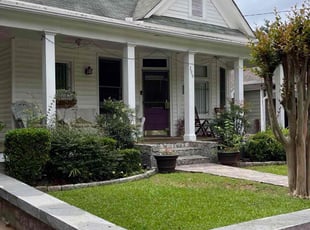



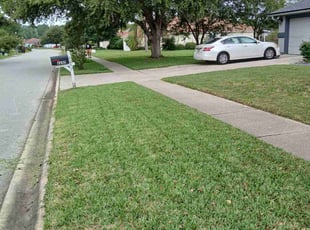




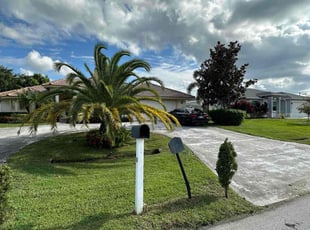

Service Recommendations in Atlanta
LawnStarter pros will let you know what your lawn needs. Here are some recent recommendations for lawn care services in Atlanta, GA.
Pro Recommendation for Yard Debris Removal
Pro Recommendation for Other Yard Maintenance
Pro Recommendation for Lawn Cleanup
Pro Recommendation for Yard Cleaning
Pro Recommendation for General Landscaping / Maintenance
Pro Recommendation for Cleanup
Top Atlanta, GA Lawn Services of December 2025









